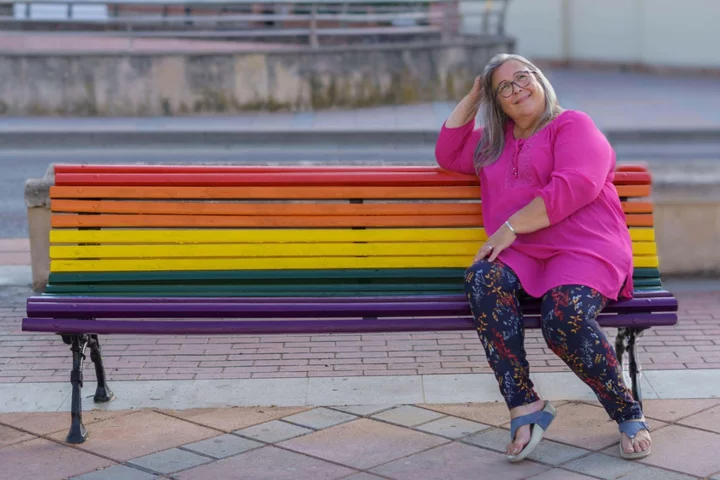
How to support someone coming out in their 30s and beyond
Coming out can be hard at any age, but by the time you’re well into adulthood it may feel terrifying, and be completely life-changing. Many people who come out in their thirties and onwards may have wanted to for a long time but not felt safe enough to do so. As October 11 marks National Coming Out Day, it’s important to reflect on how, if and when people can share their authentic selves. “I wasn’t raised in a time when it felt safe to express attraction to women,” says author and creative mentor Fiona Fletcher Reid, who came out last year at the age of 35. “I wasn’t sure about my sexuality until I had psychosexual therapy and was able to explore all the layers of internalised homophobia and repression that I had accumulated over my 35 years,” she says. So, how you can support someone who is going through it? Don’t assume everyone is the same Not every person’s coming out looks the same, and some LGBTQ+ experiences are not universal. “Coming out is a personal experience and because it is often physically and emotionally dangerous to be openly queer, lots of people never feel able to be open,” says Fletcher Reid, now 36. “Some people might feel free to come out once they have ended a particular relationship, or after meeting people who they feel safe around. “For others, like me, it’s that we don’t consciously acknowledge our sexuality until we are a lot older and have the confidence to work through the emotional implications and real-life consequences that come with that,” The writer, from Glasgow, was going through a divorce at the time with a man she’d been with since the age of 17. “During therapy, I talked a lot about the pain I was experiencing during intercourse as well as my general anxiety around sex. It wasn’t until I’d built up a trusting relationship with my therapist that I felt able to discuss the fact that I thought I might be gay and I did not expect that to come up, so I was just as surprised as everyone else when I came out.” Don’t question their authenticity Validate what the person who has come out is saying. “Don’t say, ‘Are you sure?’ because you can rest assured that the person coming out to you has thought long and hard about this,” says Fletcher Reid. “Casting self-doubt on someone when they have opened up a vulnerable part of themselves to you is hurtful.” Don’t question them about their sex life It’s no one else’s business. “Please don’t ask about whether they have been intimate with anyone, or any other sort of suggestion that they need to ‘prove’ their sexuality to you,” she stresses. Consider what they feel and accept that it is a big deal They are probably feeling “a mix of emotions, including excited, happy, empowered and scared for their safety”, says Fletcher Reid. “Sadly coming out can still cause huge ruptures in relationships so be aware that this is a huge moment for them and comes with real consequences. “Dismissing their experience as ‘not a big deal’ because you think it’s ‘normal to be gay’ now is a dangerous and false narrative.” It may sound simple, but just listening and supporting them is vital. “Be there to listen and try to celebrate all the new things that they are exploring as they come out, whether that’s dating, meeting new people or finding ways to experiment with their identity through fashion,” says Fletcher Reid. “Repeat often that you love and care for them and that you accept this evolution of them, that you are happy to see them happy.” Suggest they find community “Encourage them to talk to other people who have been through similar experiences if you can,” she says. “As much as friends and family want to understand what they are going through, it is far more validating to talk to someone else who has come out later in life and understands the emotional intricacies of the experience. “They can also hopefully show them that there are good times ahead.” Thank them for sharing with you “It is a privilege that someone trusts you with coming out, especially later in life. Tell them that you are honoured to have been trusted with this information, and reassure them that you will keep it private until they are ready to tell other people,” Fletcher Reid suggests. “The best reactions that I had from people were seeing their joy that I had discovered this important part of myself, and that had a huge impact on my ability to feel hopeful amidst the pain caused by my divorce. “Allowing them to feel conflicted and guilty and offering reassurance that they have the right to be themselves will make them feel so much happier.” Read More Israel-Hamas conflict: How to talk to teenagers about distressing news stories Autumn décor ideas for a seasonal refresh Why you shouldn’t tidy your garden too much in autumn World Mental Health Day: 5 ways to beat anxiety and change your life Alternative veg to grow for next season How to spot if your child is struggling with their mental health – and what to do next
2023-10-11 13:49
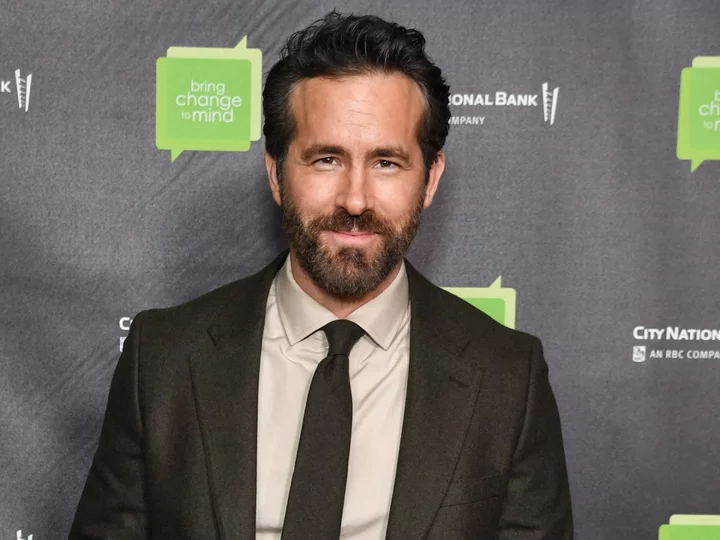
Ryan Reynolds opens up about how his mental health spins ‘out of control’
Ryan Reynolds has spoken candidly about his mental health, revealing that his mind can “spin out of control” sometimes. The actor, 46, spoke candidly about his mental health challenges during an interview with Page Six on 9 October, while attending non-profit organisation Bring Change to Mind’s annual Revels & Revelations Gala. Speaking to the outlet, he revealed that he’s found himself spinning “out of control” at times, before noting that he’s “not always great” at maintaining his mental equilibrium. However, Reynolds shared some routines that he follows when struggling with his mental health. “I certainly have my own little rituals and those kinds of things that help me stay grounded and keep my mind from spinning out of control,” he said. “Sometimes I’m really good at it, sometimes I’m not.” The Deadpool star noted that when he becomes aware of those “out of control” moments, he meditates in order to “take the time” for himself to regroup. He also shared how he’s become aware of his own lifestyle traits that he wants to work on amid his mental health struggles. “I tend to overbook myself when I’m spiraling that way,” he said. “I’m sort of aware of that stuff and I manage it as well as you can.” This isn’t the first time that Reynolds has spoken out about his mental health. He first opened up about his struggles with anxiety in February 2022 during an appearance on CBS’s Sunday Morning. “I’ve had anxiety my whole life really and you know, I feel like I have two parts of my personality. That one takes over when that happens,” he said. He also recalled how his feelings of anxiety would intensify before appearances on talk shows, such as Late Night With David Letterman. “I remember I’d be standing backstage before the curtain would open,” he said. “And I would think to myself: ‘I’m gonna die. I’m literally gonna die here. The curtain’s gonna open and I’m just gonna be a symphony of vomit.’ Just, like, something horrible’s gonna happen!” The Green Lantern star then noted that “as soon as that curtain opens” before he goes on stage, “this little guy takes over” that ultimately helps him manage his anxiety. “And he’s like: ‘I got this. You’re cool.’ I feel, like, my heart rate drop and my breathing calm, and I just sort of go out and I’m this different person. And I leave that interview going: ‘God, I’d love to be that guy!’” he said. During his appearance at Bring Change to Mind’s event on 11 October, Reynolds also discussed conversations that he and his wife, Blake Lively, have with their children about mental health. “I think it’s more about talking to them about everything,” he told People at the gala. “It’s genuine when I say I take a huge interest in their days and how things are going.” Reynolds and Lively, who’ve been married since 2012, share three daughters: James, eight, Inez, seven, and Betty, four. In February, they welcomed their fourth child, whose name hasn’t been publicly revealed. The Free Guy star also explained that the “best time” of his day is when he walks his children to and from school. When discussing some of the challenges that children often face, Reynolds praised his daughters for the self-awareness they’ve developed. “I think as parents, we are so much better equipped to handle the rigours of childhood through our kids now than when I was a kid. It’s just totally different now,” he said. “People are much more self-aware. And that’s the thing we sort of hang our hat on the most is self-awareness with our kids. Not be happy, not be anything, just be self-aware and welcome everything in.” Read More Ryan Reynolds describes experience attending Travis Kelce’s game with Taylor Swift From double dates to parenthood: A timeline of Blake Lively and Ryan Reynolds’ relationship NFL defends Taylor Swift coverage during games as Travis Kelce says they’re ‘overdoing it’ Ryan Reynolds describes experience attending Travis Kelce’s game with Taylor Swift Pokemon’s Detective Pikachu Returns and more top games of the week Travis Kelce reveals the two people who helped him woo Taylor Swift
2023-10-11 05:20

Israel-Hamas conflict: How to talk to teenagers about distressing news stories
With all the access teenagers today have to the internet and social media, they may see more distressing news stories than even their parents. Palestinian militant group Hamas – deemed a terrorist group by the UK Government – invaded Israel on Saturday from Gaza, with rocket attacks by air as well as military in boats. Since then, Israel has sealed the Hamas-ruled Gaza Strip off from food, fuel, medicine and other supplies, while launching retaliatory air strikes on the territory, which is home to 2.3 million people. The most recent numbers suggest 900 people have been killed in Israel, 700 in the Gaza territory and the West Bank, and many hostages have been taken. Hamas has pledged to kill captured Israeli hostages if attacks target civilians in Gaza. The conflict has sparked protests by pro-Palastine and pro-Israel groups in the UK and prompted political division on social media. Teenagers are likely to be exposed to a lot of the news, internet discussion and perhaps distressing images of conflict. So how should parents approach this? Talk about it at home Dr Jeri Tikare, clinical psychologist at Kooth, a digital mental health platform, believes parents should be as truthful as they can with their teenagers. “This means that it is important for us to not to hide things away from them. It is better for them to hear it from us (their people of safety) as opposed to reading it or hearing it from others,” he says. “Also bearing in mind the curious nature of the mind. It is inevitable that for things that they do not understand, they might research and look for answers. “It can be helpful if they get their information from a reliable source which can feel contained and reassuring. But share information at a level that is developmentally right and just enough to help the young person feel contained and safe.” Check yourself As the parent, learn the basics of what is going in the conflict yourself from reputable sources so you can have balanced, informed conversations with your child. “It can also be useful to be aware of our own reactions as parents or primary caregivers,” he says. “One of the ways young people learn and develop is via observing and then modelling adult behaviour. Hence, they can pick up anxieties or worries displayed by parents.” Validate and normalise expressing emotion If your teen is particularly affected by distressing news stories about war and conflict, Tikare encourages parents to give their teenagers the opportunity to express how they are feeling in different ways – such as writing, drawing, stories, songs, and things that feel helpful for the young person. “Some find a feelings box helpful,” he adds. “It might also be helpful to introduce them to some simple relaxation techniques such as taking three deep, slow breaths, breathing in for a count of three and out for three.” Be there for them Giving your teenager the space, time and encouragement to open up about how they feel on any subject – world news or otherwise – is key. “I know that life can be hard, busy and sometimes young people are aware of this and might not want to disturb you,” Tikare says. “Therefore, it might be helpful to make a conscious effort to let them know that you are mindful of how difficult it can be and reassure them that you are available to talk about things. “Giving them extra love and attention at this time can be helpful, especially at difficult times like this.” Discuss social media Tikare acknowledges that television, social media and other platforms “can be very distressing and exacerbating” for teenagers. But you may not be able to prise your child away from posting on their social media accounts altogether. “It would depend on the motivation behind posting and where they are posting,” Tikare says. “Posting about the feelings experienced around the conflict in a supportive and possibly moderated space, with people sharing similar feelings associated with the conflict, can help normalise the experience and leave them feeling less alone. “On the other hand, it could also expose them to content and comments that could potentially trigger distress.” So be sure to make them aware of the content they may come across online. Read More Autumn décor ideas for a seasonal refresh Why you shouldn’t tidy your garden too much in autumn World Mental Health Day: 5 ways to beat anxiety and change your life Alternative veg to grow for next season How to spot if your child is struggling with their mental health – and what to do next Does your pillowcase make a difference to your skin and hair health?
2023-10-10 20:51
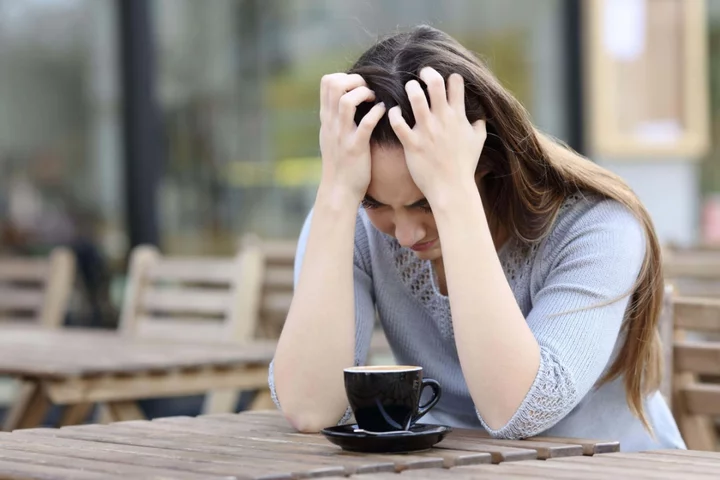
World Mental Health Day: 5 ways to beat anxiety and change your life
Anxiety is something that touches most of us, to a greater or lesser extent. Although it may just be a temporary blip for some people, for many, anxiety is a diagnosed condition that blights their lives. Indeed, Mental Health UK estimates more than one in 10 people in the UK are living with an anxiety disorder – that’s over eight million of us. And World Mental Health Day (October 10) is a chance to address the topic, agrees clinical psychologist Dr Kirren Schnack – author of the new book Ten Times Calmer: Beat Anxiety And Change Your Life. “It’s a reminder that mental wellbeing is just as important as physical health,” she says, pointing out that anxiety disorders are among the most widespread mental health issues globally. “Clinically, I’ve seen more and more people coming in with anxiety issue. The pandemic has played a significant role in this surge, introducing unprecedented levels of uncertainty, fear, and social isolation. At the same time, global economic instability and job losses have intensified stress and anxiety for many,” Schnack adds. “The widespread use of digital technology and social media has exposed people to a constant stream of alarming news and comparison-driven content that also feeds anxiety.” Schnack explains that anxiety disorders include generalised anxiety disorder (GAD), which causes chronic worry and hinders decision-making; health anxiety, where there’s an excessive preoccupation with diseases and illness; panic disorder, which is marked by sudden overwhelming panic attacks; and social anxiety, which leads to avoidance, isolation and low confidence. “They can blight daily life through physical symptoms, cognitive impairment, social isolation, disrupted routines, and emotional distress,” she says. Schnack suggests these five ways to combat anxiety problems and find calm… 1. Calm your stressed nervous system Anxiety places significant strain on the nervous system, Schnack explains, but there are simple daily practices that can help alleviate this stress. One is focusing on breathing, extending your exhale longer than your inhale. To do this, Schnack says you need to inhale gently through your nose, pause for a few seconds, then exhale slowly and deeply, ensuring an extended exhale. “A longer exhale helps by increasing the activation of the body’s parasympathetic nervous system, which counteracts stress hormones, lowers heart rate, and reduces overall physiological stress,” she says. She suggests around three to five of the breaths are repeated on multiple occasions throughout the day, and stresses that consistency is key. “Recognise that if anxiety has been a longstanding presence, it will take time and patience to restore your nervous system’s sense of safety and stability.” 2. Address anxious thoughts Schnack explains that anxiety often generates anxious thoughts that can seem like undeniable facts that are often dwelled on and reacted to, thus intensifying anxiety. “To break free from this cycle, it’s crucial to consciously confront and process these anxious thoughts,” she says. To do this, write a simple record, noting the date of your anxious prediction, describing what it was, and then, after a specified time like a day or two, return to what you’ve written and confirm whether the prediction was accurate by marking it as ‘yes’ or ‘no’. When the prediction doesn’t materialise, make a note of the actual outcome. Revisit the record, especially during anxious moments, and count the yes or no entries to reflect on your progress. “This practice trains your mind to adopt a broader, less anxious perspective,” explains Schnack. 3. Stop over-focusing on anxiety“People struggling with anxiety often find it challenging to shift their attention away from anxiety symptoms, leading to a persistent preoccupation that can worsen their problems,” says Schnack, who explains that this preoccupation can lead to excessive self-analysis, fixation on physical sensations or repetitive thoughts, and being hypervigilant. To shift your attention away from overwhelming anxiety, Schnack suggests trying this exercise: choose a colour, such as blue, and actively seek out blue objects in your surroundings. Name them out loud, and count them as you move around, possibly describing the item too. “Strive to maintain this focus for a few minutes, switching to different colours if necessary. Again, consistency is crucial, so make an effort to practice this regularly whenever anxiety hijacks your attention,” she advises. 4. Learn to tolerate uncertainty Recognising and addressing uncertainty is vital when dealing with anxiety, Schnack stresses. “You can’t resolve every uncertainty in life – the key lies in enhancing your ability to tolerate uncertainty so you can reduce your anxiety,” she explains. “Being more accepting of the fact that things may not always go as planned or that the future is uncertain can be incredibly liberating.” To help build resilience against uncertainty, Schnack advises people to take a moment to slow down and not immediately engage in reactive behaviour demanded by uncertainty, such as checking, Googling or avoiding things. Instead, she says, note your feelings, observing what uncertainty is doing to your mind and body, and write out an affirmation such as: ‘I’m feeling anxious because I’m uncertain about… My typical response to uncertainty is to engage in… behaviour. I recognise this only worsens my anxiety. My goal is to distance myself from anxiety rather than gravitate towards it. I can sit with the feeling of uncertainty for as long as I can, and build on this time until I get better and better at it.’ 5. Gradually face your fearsConfronting your fears is an effective way to overcome them, observes Schnack, although this can often feel overwhelming. “When you confront your fears, you’re essentially acting in opposition to your anxious thoughts and what anxiety is telling you. This process weakens anxiety’s grip on you, and when the actual outcomes don’t align with your anxious predictions, your mind can naturally adjust its thinking.” She suggests starting with small steps and gradually building up. So, for social anxiety, gradually start by saying a simple sentence or asking a basic closed question, and gradually building up from there. For health anxiety, gradually reduce and eliminate excessive online researching about illness and diseases, starting with small-time durations and then building on that. For panic disorder, gradually spend more time in places you typically avoid, starting with short durations like 30 seconds, then a few minutes, and gradually keep increasing the time. “Remember to repeatedly face your fears to make meaningful progress – it’s not just a one time thing,” adds Schnack. Ten Times Calmer: Beat Anxiety And Change Your Life by Dr Kirren Schnack is published by Bluebird, priced £16.99. Available now. Read More Alternative veg to grow for next season How to spot if your child is struggling with their mental health – and what to do next Does your pillowcase make a difference to your skin and hair health? Sarah Jessica Parker channels Carrie Bradshaw on the red carpet in mismatched shoes Does your pillowcase make a difference to your skin and hair health? As transphobic hate crimes rise by 11% in a year, how to be a better ally
2023-10-10 14:20

Elizabeth Hurley issues reminder to women about getting mammograms as she raises awareness about breast cancer
Elizabeth Hurley has issued a reminder to women about getting mammograms, in honour of her partnership with Estée Lauder’s Breast Cancer Awareness campaign. The model, 58, spoke candidly about mammograms – which are X-rays performed on women’s breasts to screen for cancer – during a recent interview withUs Weekly. While discussing her last 28 years as the ambassador of Estée Lauder’s campaign, she told women that if they feel something “abnormal” when examining their bodies, they shouldn’t hesitate to get it checked by a doctor. “I think the most important thing you can do is familiarise yourself with your breasts because they’re yours and only you know how they feel,” she said. “You should recognise something when it’s abnormal, and you should go to the doctor right away.” Hurley emphasised that annual screenings for breast cancer are not only “vital,” but they should be considered a part of “looking after your health in every way”. She also went on to urge women to be “breast cancer bullies” by continuing to encourage their loved ones to get checked for the disease. “Make sure your friends, your family, your mother, your grandmother, that they’re going for their screenings regularly and urge them to self-check,” she said. “It doesn’t discriminate. It can hit anybody. Some groups are more vulnerable than others.” She also made a reference to one breast cancer that can be difficult to treat, triple-negative breast cancer, which “differs from other types of invasive breast cancer” because “it tends to grow and spread faster, has fewer treatment options, and tends to have a worse prognosis”, as noted by the American Cancer Society. The type of cancer can also be “more common in women younger than age 40, who are Black, or who have a BRCA1 mutation”. “It disproportionately affects Black women,” the Bedazzled star added. “It’s a diverse disease and it needs to be attacked in a diverse way.” According to the American Cancer Society, women between the ages of 45 and 54 “should get mammograms every year”. Meanwhile, women who are 55 and older can either “switch to a mammogram every other year, or they can choose to continue yearly mammograms”. In addition, women between the ages of 40 and 44 “have the option to start screening with a mammogram every year”. The organisation also noted that breast cancer is the most common cancer in women, with estimates of “about 297,790 new cases of invasive breast cancer” being diagnosed in women in the US in 2023. Over the years, Hurley has continued to speak about the importance of getting a mammogram. Last year, she joined Loose Women hosts Kaye Adams, Brenda Edwards, Nadia Sawalha, and Carol McGiffin for a self-examination on live TV. During the segment, she also opened up about losing her own grandmother to the disease, and how her attitudes towards breast cancer have shifted over time. “At that time nobody talked about it. There was no pink ribbon, no Breast Cancer Awareness month,” the Serving Sara star said, adding that when her grandmother first found a lump in her breast, she didn’t go to the doctor because she was “scared and embarrassed”. “When she finally went it was quite progressed. But she still never talked about it,” the model continued. “It’s still a life-threatening disease for many women, but times have changed. We talk about it now.” During her interview with Us Weekly, she went on to celebrate her 28th year with Estée Lauder’s Breast Cancer Awareness campaign, noting that Estée Lauder’s daughter-in-law, Evelyn Lauder, is the one who first asked her “to get involved” with the mission. “That’s how it started, and I’m still here. We’ve raised $118m, 93 million of which went straight to research,” she said. “The rest went to education, medical services, support groups [and more]. It’s a phenomenal achievement.” Read More Big Brother narrator Marcus Bentley: Meet the man behind TV’s most recognisable voice ‘Not guilty’: Elizabeth Hurley reacts to rumours she took Prince Harry’s virginity Elizabeth Hurley slams British Airways’ ‘dodgy service’ after getting stuck in Antigua Like Sophie Anderton, I have felt the shame of struggling to have a child of my own How to spot if your child is struggling with their mental health – and what to do next How to get rid of bedbugs: Signs and symptoms amid threat of UK invasion
2023-10-10 05:20
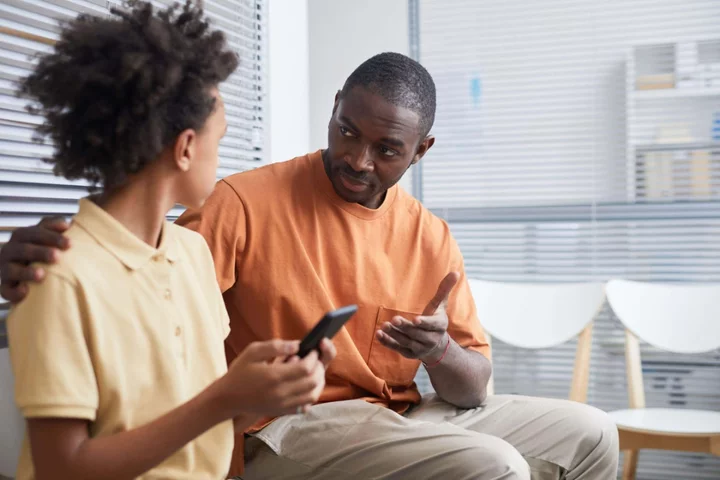
How to spot if your child is struggling with their mental health – and what to do next
Spotting when your child is struggling with their mental health, and knowing how to support them, can be tricky for parents and carers. It’s an important issue to be aware of, however. According to the Children’s Society, in the three years up to 2022, the likelihood of young people having a mental health problem increased by 50%, while children and young people’s mental health charity Place2Be says one in six children experience mental health difficulties, rising to one in four amongst 17–19-year-olds. Emotional disorders including depression and anxiety are among the most common problems to crop up. James Emmett, regional clinical lead at Place2Be, says although the Government has taken “great strides” to address the issue by introducing support teams and senior mental health leads in schools, “we’re still seeing a sharp increase in diagnosable mental health conditions among children and young people, now affecting one in six children – which is around five in every classroom”. Stevie Goulding, senior manager for parents and carers services at the charity YoungMinds, says: “More young people than ever are struggling with their mental health and are in need of support. This generation is facing a unique set of pressures – living through a pandemic, a cost-of-living crisis and ongoing global instability – and they’re worried about their future. “As young people navigate the ups and downs of growing up, recognising when to be concerned about your child’s mental health can be difficult.” Here, Goulding and Emmett outline how parents can spot whether their child may be struggling, and how to help… 1. Look for behaviour changes A change in behaviour is usually the first sign that a child or young person is feeling low, says Emmett: “They may eat too much or not enough, have problems sleeping, or stop doing things they normally enjoy.” Goulding adds: “If you notice changes in your child’s behaviour or if they appear persistently distressed, it could mean they’re struggling with their mental health, and it’s important to take their concerns seriously.” 2. Give them the opportunity to talk Goulding suggests parents try to talk to their child or teen about how they’re feeling in a non-judgemental way. “Remember, they might not want to open up at first, so reassure them you’re there for them when they’re ready to talk. Remind them it’s ok for them to feel scared or unsure, and try to reassure them,” she advises. 3. Don’t force them to talk However, Emmett says sometimes they may not want to talk, adding: “It’s important that adults don’t force them to have a conversation they don’t want to have. Parents and carers must make sure they’re available – but don’t pressure them to talk. “It can be really tempting to ask a lot of questions, but it’s easy to slip into interrogation mode. Try to focus on the here and now and what would help moving forward.” 4. Choose your momentAvoid discussing the underlying causes of your child’s distress with them during intense moments, Goulding advises: “While it’s crucial to provide support, it can be more beneficial to address these topics when they’re feeling calmer.” 5. Ask how they’re feeling Ask if your child notices when they feel more or less sad, for example, at school, or when they’re with their friends and family, suggests Emmett. “Responding sensitively to your child’s signals with concern and interest will help them learn you’re there for them,” he notes. Goulding says parents can acknowledge their child’s feelings by saying something like: ‘It’s completely understandable that you’re feeling…’. She explains: “This helps to reassure them their feelings are valid and it’s ok to feel different emotions.” 6. Remind them of obstacles they’ve overcome in the past When a child or young person gets overwhelmed, they forget just how much they’ve already dealt with in their lives. “Tell them stories about how proud you were when they coped with certain moments in their life, such as an sitting an exam, or moving house,” says Emmett. “This will remind them of their resilience – their ability to adapt to difficult situations.” 7. Encourage them to stay active Physical and mental wellbeing are often linked. “This means doing something active can be a great way to boost your child’s mental health, and heading outside into green space can have even greater benefits,” says Emmett. He suggests parents walk or cycle short distances with their child instead of going in a car: “It’s cheaper and will help the planet to be healthier too.” 8. Model positive relationships Happy relationships between parents and significant adults lead to better mental and physical health for everyone, stresses Emmett. “By modelling positive relationships of your own, you can help your child to see what positive, healthy and meaningful relationships should look like – and to recognise when friendships aren’t positive,” he says. 9. Remind them how they feel will change Your child might not be able to see the light at the end of the dark tunnel they’re in. “Reassure your child that how they’re feeling is temporary,” says Goulding. “Things can change and they can feel better.” 10. Discuss what help is available Talk to your child about the different sources of help that are available, such as helplines, text lines and online chat services. “Reassure them it’s alright to confide in others, as young people often worry about upsetting their parents,” says Goulding. As well as YoungMinds parents’ helpline (0808 802 5544) and Place2Be, other sources include your child’s school, which will have a designated senior mental health lead, your GP who can refer your child to CAMHS, Parenting Smart, which provides free advice for parents and carers of 4–11-year-olds on how to support their child’s wellbeing and behaviour, and the free Shout 24/7 textline for anyone in crisis (text SHOUT to 85258). Read More Does your pillowcase make a difference to your skin and hair health? Sarah Jessica Parker channels Carrie Bradshaw on the red carpet in mismatched shoes Does your pillowcase make a difference to your skin and hair health? As transphobic hate crimes rise by 11% in a year, how to be a better ally Impact of relationships with AI chatbot programmes ‘worrying’, psychologist says Pokemon’s Detective Pikachu Returns and more top games of the week
2023-10-09 14:47

Chris Hemsworth reveals ‘shocking’ Alzheimer’s warning
Chris Hemsworth has opened up about his fitness and lifestyle changes he’s made in the wake of a “shocking” health warning. The Australian actor, 39, discovered during the filming of National Geographic series Limitless that his DNA contains two copies of the gene APOE4, which has been linked to an increased risk of Alzheimer’s disease. Speaking about the news, the actor, who plays Thor in the Marvel Cinematic Universe (MCU), told Vanity Fair: “They took all my bloodwork and did a bunch of tests and the plan was to on-camera tell me all the results and then talk about how you can improve this and that. “And Peter Attia, who is the longevity doctor in that episode, and overseeing a lot of the show, called [show creator] Darren [Aronofsky] and said, ‘I don’t want to tell him this on camera. We need to have an off-side conversation and see if he even wants this to be in the show.’ “It was pretty shocking because he called me up and he told me.” Hemsworth explained that he had certainly not expected to receive such “intense” news as the show was originally intended to be a “fun” way of exploring “longevity”. However, he said: “It was a really good catalyst to dive into everything I needed to be doing in either the prevention front or the management front. “There was an intensity to navigating it. Most of us, we like to avoid speaking about death in the hope that we’ll somehow avoid it.” Speaking on camera about the discovery, Hemsworth said: “You’re constantly thinking you’re going to live forever, especially as a young individual. Then to be told that this might be the thing that might take you out was like, whoa... it kinda floored me.” Since then, Hemsworth has upheaved his life, and revealed the changes he’s introduced after sdis overing the news. Speaking to Men’s Health, Hemsworth, who is known for his muscly physique, said he is “incorporating more solitude into his life” and has lowered the amount he exercises. “I’ve always been pretty consistent with my exercise commitments, but lately I’ve really felt the importance of taking time for yourself without any outside voice or stimulation and making time for stillness,” he told the outlet. The actor, who is sleeping more regularly as well as having ice baths, also addressed the way his physique changes for roles, stating: “My weight fluctuates a lot due to differing roles and also my own interests in regards to challenging my body in different ways.” He continued: “‘I’m lifting less frequently than I was and I’m incorporating more cardio and endurance workouts which I much prefer than heavy body building style sessions.’ Read More The form of exercise that can help prevent Alzheimer’s disease, according to new study Chris Hemsworth criticises Taika Waititi’s Thor film for being ‘too silly’ This is the lesser-known symptom of Alzheimer’s that could affect drivers Brits reveal advice they would give their younger selves What ‘healthy obesity’ really means according to the experts How to get rid of bedbugs: Signs and symptoms amid threat of UK invasion
2023-10-06 21:25
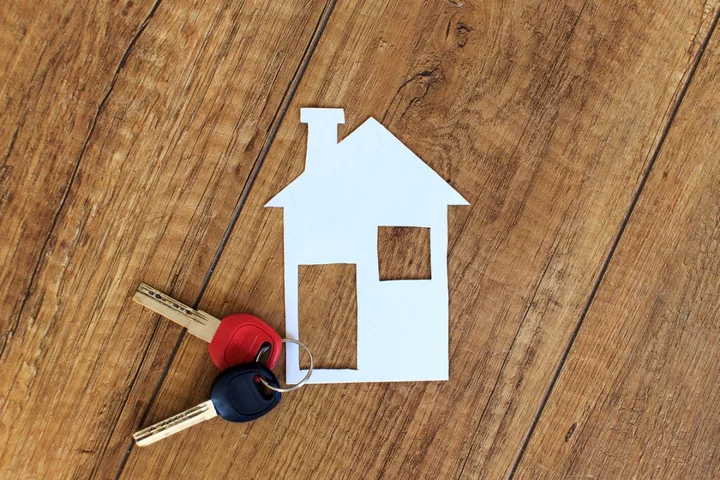
Brits reveal advice they would give their younger selves - including investing in property
Brits have revealed the advice they would give their younger selves – including investing in property as early as possible, taking more photos and not being afraid of rejection when asking someone out. A survey of 2,000 adults found 58 per cent would love nothing more than to give the younger version of themselves some good tips. Those surveyed said they would look after their physical health more, avoid wasting their time on negative people and learn from their mistakes. The top 20 list also included recommendations to save 10 per cent of your wages every month, spend more time with your parents and celebrate the little wins. But while 67 per cent would offer financial words of wisdom, 82 per cent felt positive knowing every decision they’ve made has led them to the point where they are now. And the same percentage (82 per cent) wanted to live their life with no regrets. AXA UK commissioned the study as part of its ‘Future You will thank you’ campaign which looks at how our future selves will thank us for the good choices we make today and reveals the decisions people are most thankful for. Scarlette Douglas, former A Place in The Sun host and I’m A Celebrity contestant, is taking part in the campaign discussing the forks in the road which led her to a career in television. She has contributed to an eBook revealing more of these insights from celebrities and the public. Scarlette said: “I had been performing in musicals for eight years when I made what I feel was a great decision at that point in my life, which was to move away from theatre and pursue a different career in television presenting. “I finished my last musical in 2014 and in 2015 I landed an amazing job as a presenter for A Place in The Sun – I had my first presenting role on a Channel 4 show. “I’ve now been in television for eight years and if I didn’t take a leap of faith and make that decision to leave musical theatre and pursue television, I would never be where I am now.” The study also found buying a house as soon as possible, getting married and heading off abroad were some of the things people are most grateful to their young self for. But when it came to regrets, 39 per cent had at least one big one in their life. Of those, 56 per cent said these were romantically linked, while 35 per cent had health-related regrets. Others spoke about how they wish they got to know parents and loved ones better before they passed away. Although 27 per cent had learnt from some of the regrets their parents had experienced. Architect and TV presenter George Clarke is also involved with the campaign and spoke about his first home. He said: “When I bought my first ‘grown-up’ house it was a wreck and definitely a building project. “We had to live in it while we did the work bit by bit over the course of three years – it was a major project and at the time we didn’t have a lot of money, so it was work, earn, do building work... repeat. “It was a major refurbishment and what made it even harder was our child was born during the build too. All of it was a big risk, especially a financial one. “The house looked amazing when we completed it, and although we loved it the financial pressure and the length of the build took its toll and we made the decision to sell. “We were very lucky with the sale and we were able to buy another house just a few hundred yards from the one we’d sold – that project began the journey of setting ourselves up for life.” The research also revealed that dropping a phone down the toilet, having to pay hefty vet bills and having their home flooded were the situations where people regretted not getting insurance. There was a desire among those surveyed, by OnePoll, to say yes more often, with people wanting to experience new travel and holiday destinations (46 per cent), new social activities and plans (35 per cent) and new friendships (34 per cent). Jason Fox, TV broadcaster, former UK Special Forces soldier and Royal Marines Commando, is also taking part in the initiative. He said: “When I left the marines after 20 years of service, I suffered from PTSD and had to learn to look after my mental health. “I realised I could also be useful in the civil world, by showing others that mental wellbeing is a strength, not a weakness. “When I was able to, the best decision I made was to invest in my mental health initiative and organisation ‘Rock 2 Recovery’ to support others in similar situations.” Tara Foley, AXA UK’s CEO, said: “Every decision we make impacts our future, from the biggest life choices to the smallest. “The findings show most people are pretty happy with the majority of decisions they’ve made, but they wouldn’t be averse to going back and giving their younger self a bit of guidance to influence how things turned out further down the line. “It’s encouraging that so many people say they aren’t living their life with regrets and it’s good to see a real desire to experience new things and push the boundaries, such as visiting far-flung places or trying new activities. “Making sure you’re always covered for every eventuality – whether it’s car, home, business or health insurance – means you can take on whatever life throws at you without worrying about unforeseen consequences or unexpected financial challenges.” Top 10 pieces of advice many people wish they could tell their younger self: 1) Be more confident 2) Try not to care what other people think 3) Don’t let opportunities pass you by 4) Look after your physical health more 5) Don’t waste time with negative people 6) Learn from your mistakes 7) Save 10 per cent of your wages every month 8) Eat healthily as it will pay dividends down the line 9) Go on all the holidays you can 10) Invest in property as early as you can 11) Don’t just settle for things 12) Just relax and enjoy the ride 13) Look after your mental health better 14) Spend more time with your parents 15) Celebrate the little wins 16) Take more risks 17) Don’t be afraid of rejection when asking someone out 18) Always be there for your mates 19) Take more photos 20) Be disciplined with your time Read More Brits are so fed up with emails that retail giants now send reminder letters Adults are eager to explore the world alone over the next three years, study finds Study finds more people are moving into high flood zones, increasing risk of water disasters Chris Hemsworth shares big life changes after ‘shocking’ health warning How to get rid of bedbugs: Signs and symptoms amid threat of UK invasion I have felt the shame of infertility – it’s why I started a club for women like me
2023-10-06 19:51

Kelly Ripa praises benefits of going through menopause: ‘I love not getting my period’
While women have long complained about the negatives of menopause, Kelly Ripa has recently discovered one benefit of going through the process. In a recent episode of her podcast, Let’s Talk Off Camera With Kelly Ripa, the Live With Kelly and Mark host discussed an under-appreciated aspect of menopause that she recently experienced herself. “I love not getting my period,” Ripa, 53, told her podcast guest and her real-life hormone doctor, Dr Erika Schwartz. The TV personality said that she experienced the beginning of menopause during the Covid-19 pandemic. Menopause, according to the Mayo Clinic, marks the time in a person’s life when their menstrual cycle ends and they no longer get their period. However, Ripa recalled the moment she learned of a main upside to menopause - the ability to wear white pants without fear of getting her period. “My first Memorial Day through Labor Day after menopause… it was the summer of the white pants because I never had to worry about wearing white pants,” Ripa recalled. The All My Children alum went on to speak with Dr Schwartz about the misconceptions of menopause, and how many people still consider the topic to be taboo. “People still whisper the word menopause,” she said, adding that “the information is still so hidden”. Her hormone doctor agreed, noting that “we’re still in the Dark Ages” when it comes to menopause and described the process as “like a bad secret”. Ripa said that even her friends of the same age are in denial going through menopause. She revealed that some of her friends routinely “tell me they still get their periods regularly”, while others consider the process to be “embarrassing”. “They’re talking to me, an open book, and still cannot bring themselves to talk about having gone through menopause. It is too scary for them to acknowledge,” she said. Dr Schwartz maintained that some women have trouble opening up about menopause because they feel it’s a sign that they’re “no longer useful” in society. “Because, in this day and age, there’s still a lot from yesterday’s day and age that has permeated the society and culture,” the doctor said. “And we think that being aged beyond menopause, we’re no longer useful.” “The moment you’re no longer fertile, you’re not useful,” Dr Schwartz continued. “I think you’re very useful. That’s when you have the information, the experience. You have so much to bring to the table, that I think every woman should feel great about herself.” Ripa has been married to husband Mark Consuelos since 1996. The longtime couple share children Michael, 26, Lola, 22, and Joaquin, 20. The TV host previously revealed that when she first started going through menopause, she mistakenly thought that she was pregnant. Speaking to Haute Living about her book, Live Wire: Long-Winded Short Stories, in 2022, she recalled the moment she believed her husband had accidentally “got [her] pregnant”. “I started taking pregnancy tests daily, but then Mark sort of gingerly said: ‘Could there be another reason why you’re not getting your period?’ and me saying: ‘What other reason could there possibly be?’ He really had to walk on eggshells here [by explaining to me that I was probably going through menopause],” Ripa said. However, she ultimately felt relieved that she wasn’t pregnant. “I was really grateful that I was not going to have to explain to my kids that they were about to meet their new sibling,” she joked. Read More Kelly Ripa says she thought she was pregnant when she first started going through menopause Viewers applaud Kelly Ripa and husband Mark Consuelos’s ‘great chemistry’ after Live co-hosting debut Kelly Ripa says she worked out of a janitor’s closet for years before ABC gave her a permanent office Teenager received a ‘zero’ at school because he didn’t have class supplies As transphobic hate crimes rise by 11% in a year, how to be a better ally All the big-ticket celebrity donations to Selena Gomez’s Rare Impact Fund Benefit
2023-10-06 04:55

As transphobic hate crimes rise by 11% in a year, how to be a better ally
Transgender hate crimes have increased by 11% in England and Wales, according to new data. Statistics from the Home Office found transgender hate crimes increased by to 4,732 offences in the year ending March 2023. The rise could be partly down to public discussion by politicians, the Home Office said. “What we’re seeing in today’s Britain is a horrifying reality of anti-trans narratives that are spreading across media and from high profile politicians, and the Home Office themselves have admitted it is a likely cause of rising violence,” Robbie de Santos, director of external affairs at LGBTQ+ charity Stonewall, told the PA news agency. “We can’t be complacent about any sort of divisive or dehumanising rhetoric, or failure to deliver on policy to protect our communities. “As a survivor of a violent attack myself, I want everyone to know you’re not in this alone. We’ve proven time and time again, that when we come together as a community we can demand and create true change.” The data comes a day after the prime minister Rishi Sunak weighed in on the debate around transgender rights at the Conservative Party Conference. “We shouldn’t get bullied into believing that people can be any sex they want to be. They can’t, a man is a man and a woman is a woman. That’s just common sense,” Sunak said. Health Secretary Steve Barclay used his speech at the conference to propose a ban on trans women from female NHS wards. With many members of the transgender community feeling threatened, what can you do to support anyone struggling? Ambassadors for LGBTQ+ young people’s charity Just Like Us share their advice for allies… Talk about it Your loved ones may not know anyone who is trans, or understand what it means to be transgender. “I need friends and family to keep talking and taking a stand against transphobia,” explains Charlie Hall, 25. “Talk about it with your colleagues, friends and family. Trans people are a small minority and allies need to take action, show others that trans people exist and are just trying to live their lives.” Matty Robins, 20, adds: “Personally, my friends reposting Instagram posts from transgender people in need, or anything about Trans Day of Visibility [March 31] or Trans Day of Remembrance [November 20], for example, has been one of the biggest displays of allyship to me.” Reach out Every trans person may be facing something different. “Ask us how you can support us. Every person is an individual and reacts differently to the situation and therefore needs different kinds of support,” explains 22-year-old Carden Cappi. Challenge hate and discrimination “Trans people need allies standing up for us,” explains Robins. This could include: “Correcting people when they deadname (using the name someone was assigned at birth) or misgender a trans person, whether the trans person is there or not. Fighting for trans inclusion at school, university and in the workplace.” Instead of “calling out” someone, which Robins says can be “inflammatory and cause people to turn away from transgender allyship”, he recommends talking to them about what they just said. “They may not mean it or understand how something they say is perceived as transphobic.” Be willing to learn “Friends and family can be supportive by educating themselves,” explains Charlie Middleton, 24. There are lots of resources out there to help you learn more about the trans community. Books like The Transgender Issue by Shon Faye (Penguin, £10.99) and Juno Dawson’s The Gender Games: The Problem With Men and Women, From Someone Who Has Been Both (Two Roads, £10.99) are well worth a read. You can also follow trans activists on social media – including Charlie Craggs and Munroe Bergdorf – to learn more about the community. Read More Impact of relationships with AI chatbot programmes ‘worrying’, psychologist says Pokemon’s Detective Pikachu Returns and more top games of the week How to talk to kids about cigarettes and vapes, following Rishi Sunak’s smoke-free generation plans 4 must-have denim trends for autumn, from wide-leg jeans to split skirts Doorscaping: How to create a fabulous front door display for autumn More than a quarter of middle-aged women living with ‘metabolically healthy obesity’ – study
2023-10-06 00:21

Taylor Swift VIP concert and Paul Rudd movie night: The celebrity donations to Selena Gomez’s Rare Impact Fund
Selena Gomez has launched her inaugural Rare Impact Fund Benefit auction, and many A-list celebrities donated big-ticket events and items to raise funds for mental health awareness. On 4 October, the Rare Beauty founder celebrated the first annual Rare Impact Fund Benefit: A Night of Radiance and Reflection in Los Angeles. The event supported Gomez’s non-profit organisation, the Rare Impact Fund, which works to reduce the stigma surrounding mental health and expand access to mental health services and education for young people. Not only did the sold-out event help raise money towards the Rare Impact Fund’s mission of mental health awareness, but it was also attended and supported by a number of star-studded celebrities. Martin Short, Gomez’s Only Murders in the Building co-star, served as emcee and auctioneer for the evening. Of course, the legendary comedian didn’t stray from making the occasional joke or two. “I am proud to call Selena Gomez my friend, and not because she’s successful or rich; because she’s both,” said Short, per the Hollywood Reporter. “What makes tonight very important is we’re here to support youth mental health awareness. I don’t think there’s anyone in this room that hasn’t been touched by mental health and its issues and the pain it can bring a family. We are here to raise urgent funds for the young people who need them.” The benefit also featured a special performance by Grammy-winning singer HER and a DJ set from music producer and Gomez’s “Wolves” collaborator, Marshmello. However, it was the number of big-ticket items and experiences donated by celebrities that were the main event. Perhaps the most notable donation came from Gomez’s longtime friend Taylor Swift, who donated VIP tickets to her Eras Tour concert, listed on the Rare Impact Fund Benefit’s auction site for the starting price of $5,000. The item is no longer available, according to the Hollywood Reporter, because it’s already sold for a staggering $15,000. Gomez’s fellow Only Murders in the Building co-star, Paul Rudd, also donated quite the fan experience - a movie night with none other than Rudd himself for $5,000. Other sold auction items included a glam session with Gomez’s stylists and lunch with Camila Cabello. Pro soccer star Lionel Messi donated a signed jersey, which may explain Gomez’s meme-worthy attendance at his Inter Miami game in Los Angeles earlier this month. The Argentine player’s jersey is still available to bid for $6,000. Other items that have not yet been sold include VIP tickets to Luke Combs’ “Growin’ Up and Gettin’ Old” tour in Los Angeles, a signed banjo from Steve Martin, a luxury five-night Airbnb getaway to Mexico, and a four-night stay at the Four Seasons Resort in Maui. Gomez took the stage at the Rare Impact Fund Benefit on Wednesday, where she spoke about her own struggles with mental health. “This has been the culmination of a lifelong dream for me, but it has also stemmed from some of the darkest moments in my life,” the former Disney Channel star told attendees. “I struggled with the world inside my head for a long time and I felt lost and I felt hopeless at times. In 2020, I received my diagnosis of bipolar disorder and, to be honest, everything quickly changed,” she continued. “I actually got the knowledge and the answers I had been desperate for for so long, and understanding that obviously makes me become more aware of it, and I’m less afraid than I used to be. “With that knowledge, I could seek out the support I needed to be myself, to find my joy again, and tonight I’m very proud to say that I have. I’m working really hard every day and I’m so happy just to be alive and be here with you guys today.” The Rare Impact Fund, which Gomez founded in 2020, has a goal of raising $100m in the next 10 years to expand access to mental health services and education for young people around the world. While the “Lose You to Love Me” singer acknowledged that her mission “probably sounds really absurd,” she noted that it’s people like her little sister, Gracie, and “the world that she and her generation inherits” that inspires her to make the world “a kinder one, a clearer one, a more connected one, with support and access”. “It has been my ultimate dream to launch this fund and it’s probably the most important thing that I’ve ever done, and I just couldn’t be more proud of the Rare Impact team for the work that they’re doing,” Gomez added, before thanking the crowd for “everything you’re going to do tonight; it’s the hardest journey I’ve ever been on but by far the most rewarding”. Gomez first revealed she had been diagnosed with bipolar disorder - a mental health condition that causes episodes of mood swings - in 2020, when she appeared on Miley Cyrus’s Instagram Live series titled “Bright Minded”. During a wide-ranging interview with Rolling Stone published in November 2022, Gomez shared that she checked into a mental health facility in 2018 after experiencing her first bipolar episode. She opened up about the “dark” period in her “early twenties” when she “started to feel like I was not in control of what I was feeling, whether that was really great or really bad”. In her Apple TV+ documentary, My Mind & Me, Gomez described the fear she felt after receiving her bipolar disorder diagnosis. “When I first got out, I didn’t know how I’d cope with my diagnosis,” she recalled in the documentary, which was released last November. “What if it happened again? What if the next time, I didn’t come back? “I needed to keep learning about it,” she said of the condition. “I needed to take it day by day.” Gomez has also been open about her battle with the autoimmune condition lupus, which she was diagnosed with in 2014 and underwent a kidney transplant for in 2017. Read More Selena Gomez opens up about her mental health struggles: ‘Maybe it would be damaging to tell people who I am’ Selena Gomez opens up about bipolar diagnosis: ‘I’ve been to four treatment centers’ Selena Gomez reveals she may never carry children due to bipolar medication How to dress like Taylor Swift and Travis Kelce for Halloween 2023 NFL defends spotlighting Taylor Swift during Travis Kelce’s games Travis Kelce says the NFL is ‘overdoing it’ with their Taylor Swift coverage
2023-10-05 23:15
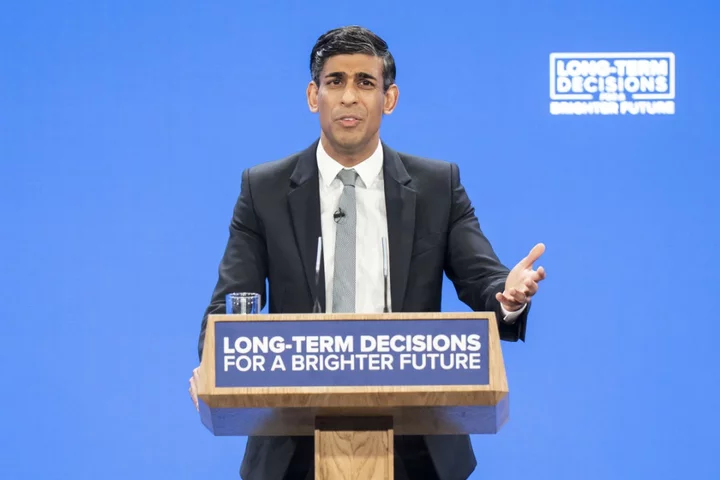
How to talk to kids about cigarettes and vapes, following Rishi Sunak’s smoke-free generation plans
Stopping the nation from smoking has long been a top priority for medical experts, families and governments, and PM Rishi Sunak has made his plans for the issues clear. At the 2023 Conservative Party Conference, Sunak said that the legal age for buying tobacco should rise every year from those born in 2009 in a bid to “try and stop teenagers taking up cigarettes in the first place”. He said: “A 14-year-old today will never legally be sold a cigarette” under new legislation he is proposing for England. The Prime Minister also said more must be done to “restrict the availability” of vapes to children, but what can be done by parents in the meantime? Here are the conversations to have with your children… The dangers of smoking “Starting smoking and vaping at a young age can have serious and long-lasting health consequences,” explains Dr Chun Tang, medical director and GP at Pall Mall Medical. “Nicotine is particularly harmful to developing brains. Young people are more vulnerable to nicotine addiction, which can lead to a lifetime of tobacco dependence. Nicotine impacts cognitive function and memory, potentially affecting academic performance. “Aside from the detrimental effect on cognitive ability as outlined above, smoking is, of course, a leading cause of various health problems, including lung cancer, heart disease, stroke, chronic obstructive pulmonary disease (COPD), and many others,” he says. “Smoking during adolescence can also interfere with the growth and development of the lungs, leading to reduced lung function. This can result in breathing difficulties and decreased physical performance.” The dangers of vaping Vaping isn’t a safe alternative, yet he sweet-smelling, plastic steam machines are rife. “Vaping is a relatively new phenomenon, and the long-term health effects are still not fully understood,” says Tang. “There is ongoing research to assess the potential long-term risks, including the development of chronic health conditions.” Vaping has been associated with various adverse health effects, including lung injuries, respiratory problems, and cardiovascular issues, he notes. “Some of the chemicals found in vaping aerosols can be harmful when inhaled into the lungs. “If a smoker takes approximately 15 puffs of a cigarette before putting it out, then we can safely assume that a 600-puff disposable vape is equivalent to around two packs of cigarettes. “Some reports suggest young people can get through as many as 7 vapes a week, the equivalent of 14 packets of cigarettes. “That is an enormous amount of nicotine and so we can expect to see the health risks posed by nicotine to be [more] exacerbated in vapers than smokers – which could be severely impacting cognitive function and affecting academic performance.” It’s essential, he says, for parents, educators, and healthcare professionals “to educate young people about the potential risks of vaping and smoking and provide support and resources for those who want to quit”. Don’t lecture them Try to be open and curious rather than defensive and angry if your child is smoking or vaping. Dr Kerry Irving, senior clinical psychologist at online mental health platform Kooth, says: “Approach any conversation to understand why the young person smokes or vapes rather than to lecture, as the latter can cause people to shut down.” Consider available supportThere may be resources online and in person that might help your child, from the NHS to TikTok creators tracking their quitting journey. “Suggest accessing external support – encourage the young person to see their GP or to make use of some of the free Stop Smoking initiatives online or in your local community,” Irving says. Be sympathetic to relapse Expect wobbles. If your teen or child is quitting smoking or vaping try to stop accept that overcoming an addiction is not easy and recovery is not linear. “Relapses are an important part of changing any behaviour long term,” says Irving. “You can help the young person learn from these by gently encouraging them to reflect on what went wrong and helping them plan for how to try again.” Read More Charity boss speaks out over ‘traumatic’ encounter with royal aide Ukraine war’s heaviest fight rages in east - follow live 4 must-have denim trends for autumn, from wide-leg jeans to split skirts Doorscaping: How to create a fabulous front door display for autumn More than a quarter of middle-aged women living with ‘metabolically healthy obesity’ – study
2023-10-05 19:56
